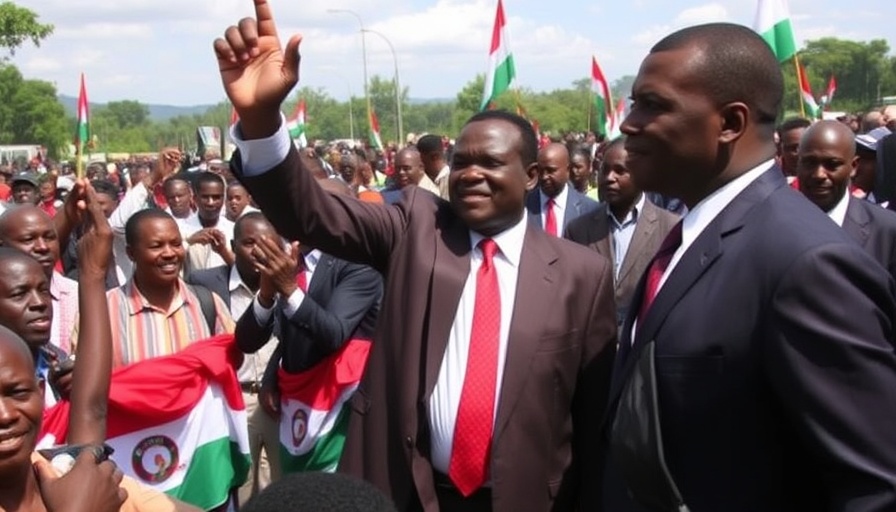
Burundi's Political Landscape: Stability or Stagnation?
The recent validation of the ruling party's landslide victory by Burundi’s top court has raised numerous questions about the political future of the nation. While the ruling party, the National Council for the Defense of Democracy-Forces for the Defense of Democracy (CNDD-FDD), has celebrated this win as a reaffirmation of public support for President Evariste Ndayishimiye, analysts point out significant implications for governance and policy direction.
Implications for Governance and Diplomacy
This ruling underscores a troubling trend in African governance, where electoral processes are often seen as merely a formality rather than a genuine reflection of democratic principles. Critics argue this reaffirms a tightly controlled political environment, threatening checks and balances necessary for fostering a dynamic political discourse. With Burundi’s history marked by civil strife and authoritarianism, the validity of future governance is now under scrutiny as it relates to foreign relations and economic partnerships.
Africa’s Role in Global Trade
For business leaders and investors, this development highlights the delicate balance in navigating African markets, where political stability is often tenuous. The ruling could affect foreign investment strategies as global companies weigh the risks of engaging with a government perceived as undemocratic. Furthermore, Burundi's position within larger economic frameworks, such as the African Continental Free Trade Area, could be jeopardized if perceived instability arises.
Potential Economic Consequences
The political landscape significantly influences Burundi's economic prospects. With the global focus increasingly shifting toward Africa as a promising market, how the ruling party manages governance could dictate its economic outcomes. Investors are eager for positive indicators, but the ruling's implications on civil liberties might make them cautious.
Conclusion: A Call for Vigilance
In conclusion, the validation of the ruling party's electoral victory in Burundi calls for careful observation by policymakers and international analysts. Understanding how these political narratives unfold will be critical, not just for Burundi's stability but also for its engagement with broader economic initiatives throughout Africa. The world is watching it closely – will the path forward lead to economic growth or further isolation?
 Add Row
Add Row  Add
Add 


Write A Comment